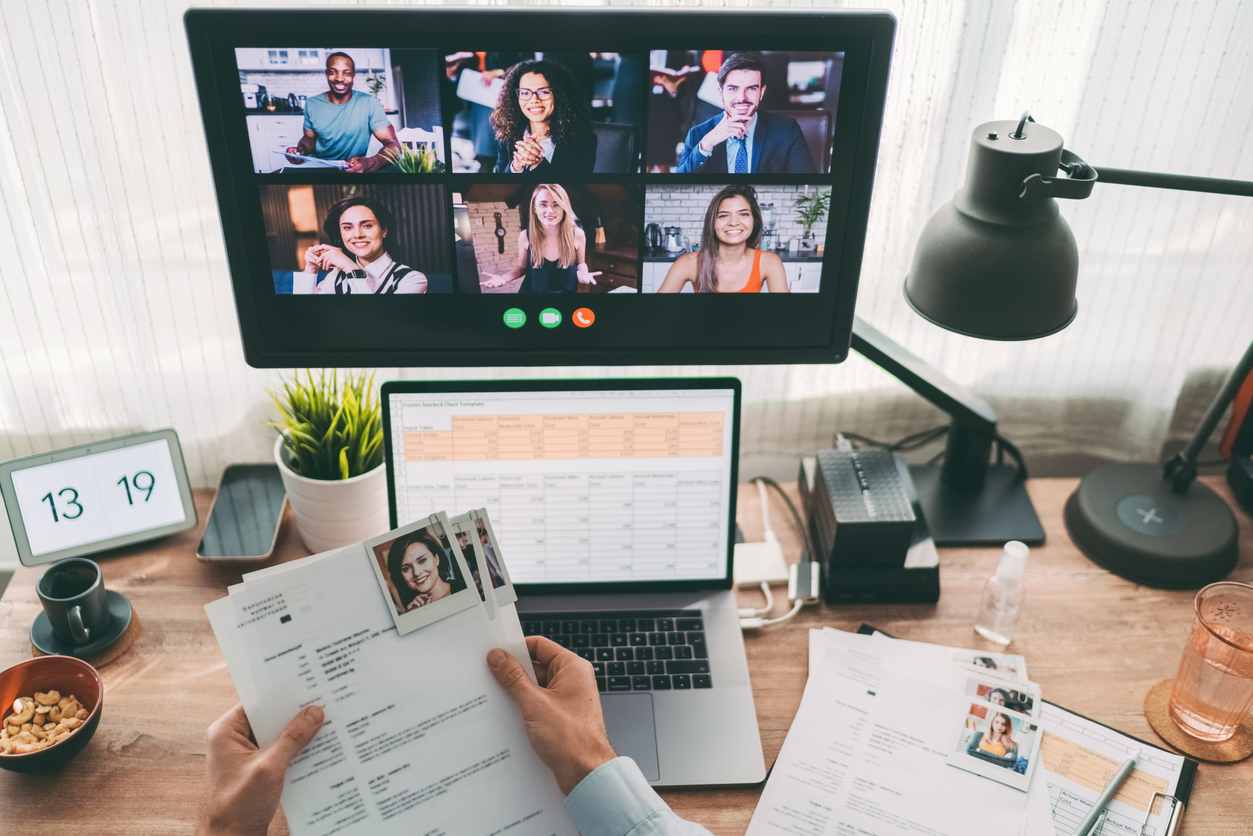In today’s job market, there are many exceptional opportunities for talented tech candidates. Of course, to land the job you must first ace the interview. With that in mind, we’ve compiled interview tips for tech candidates. This list of dos and don’ts will help you prepare for and conduct yourself like a pro during your next interview. If you implement the following suggestions, you may win yourself your dream job sooner than expected!
Pre-Interview Tips
Top interview tips start with preparation.
- Do conduct extensive research on the company in question. Examine the company’s “About Us” page to get a feel for its culture and values. Check out their LinkedIn account. Look at what employees and customers say about the company via Glassdoor and Google reviews. If you know who will be conducting the interview, look up their LinkedIn profile as well.
- Do carefully examine the job description. You want to make sure that: (a) this is a job you want to have, and (b) you have the skills to succeed in it.
- Do prepare questions for your interviewer ahead of time. For example, you’ll want to ask about the company’s expectations for the role. How will the role evolve over time? How will you be evaluated in the first 30, 60, and 90 days (if you get hired)?
- Do ensure that you’ve reviewed the position’s compensation and benefits ahead of time to ensure it will align with your employment needs. If those items aren’t in the job description, ask your recruiter about them. However, don’t ask about time off, compensation, or benefits during your interview. This could leave a bad taste in your prospective employer’s mouth. Any such items that aren’t covered in the interview can be discussed with your recruiter or hiring contact afterward.
- Do talk with your recruiter, whether they’re from in-house HR or from a firm. Ask for their advice on how best to conduct yourself during the interview, and whether the company would be a good fit for your goals.
- Do review your personal background and work experience. Think about your professional accomplishments and the projects you’ve worked on throughout the years. Familiarize yourself with your resume so that you can refer to it without needing to look.
- Do confirm whether the interview will be conducted in person or virtually. If it will be a remote interview, ensure that you’re properly prepared for it by testing your Internet speed and your device’s video and audio systems. Also, be sure to pick a neutral, professional-looking background, as well as a quiet setting that will be free of disturbance.
- Do arrive early for your scheduled interview, whether it’s in-person or remote. If it is in-person, give yourself plenty of time to park, check-in, etc.
- Do understand what you should expect from the process. For example, try to find out if the interview will involve a technical test of your skills, or whether it’s more behavior-based.
Interview Tips (During)
- Do feel prepared to discuss why you’re looking for a job, why you’re interested in the open position in particular, and why you’re qualified for the role. Highlight what you can bring to the table in terms of your experience, skill set, and cultural fit.
- Do use the STAR framework for help when answering questions. STAR stands for “Situation, Task, Action, Result.” Follow that progression for each experience-related question the interviewer asks. And always turn the result into a positive (e.g., a professional failure may have been a wonderful learning opportunity).
- Do dress in a professional manner. A cautious, conservative approach to interview attire is typically a safe bet.
- Don’t use inappropriate language during the interview, including profanity, overly casual terms, or slang.
- Don’t allow yourself to get distracted during the interview — especially if it’s a remote interview. If you’re going to take notes during the interview, let your interviewer know that ahead of time, so they won’t think your attention is wandering off because of lack of eye contact.
- Do allow yourself to enjoy the experience. After all, you’re “interviewing” the company at the same time they’re interviewing you! Look for signs that this job is a good fit for your needs and goals. Don’t be discouraged if you don’t get this job. The experience of being interviewed may help you to win the next job you apply for.
After the Interview
- Do make sure to send a thank-you email by the day’s end. This may seem like a small gesture, but even one tiny act of thoughtfulness may be enough to impress the recruiter/hiring manager who interviewed you. In the email, be sure to thank them for their time, and for the information they gave you about the role. Briefly restate why you believe you’re a good fit for the job. Additionally, invite them to reach out and ask you any questions that may not have been covered during the interview.
- Do ask for feedback from the interviewer on how they feel the session went. Asking for candid feedback is one sign of a mature, conscientious candidate. In addition, if you’re going through a recruiter, be sure to call them up and explain how you felt the interview went.
- Don’t be afraid to follow up with the interviewer. Take the initiative, especially if this is the job you really want. Ask for a time frame in which you should expect to hear back. If you feel especially daring, ask what you could do to convince them to hire you on the spot.
Implement Interview Tips and Enjoy the Process
It’s true that a job interview can make even the most qualified candidate a little nervous. However, if you follow the dos and don’ts mentioned above, you’ll be much more likely to enjoy the interview process, and ultimately win the job you want. For other helpful tips on conducting an effective job search, check out our resources for candidates, or reach out to our team at The Doyle Group today.







